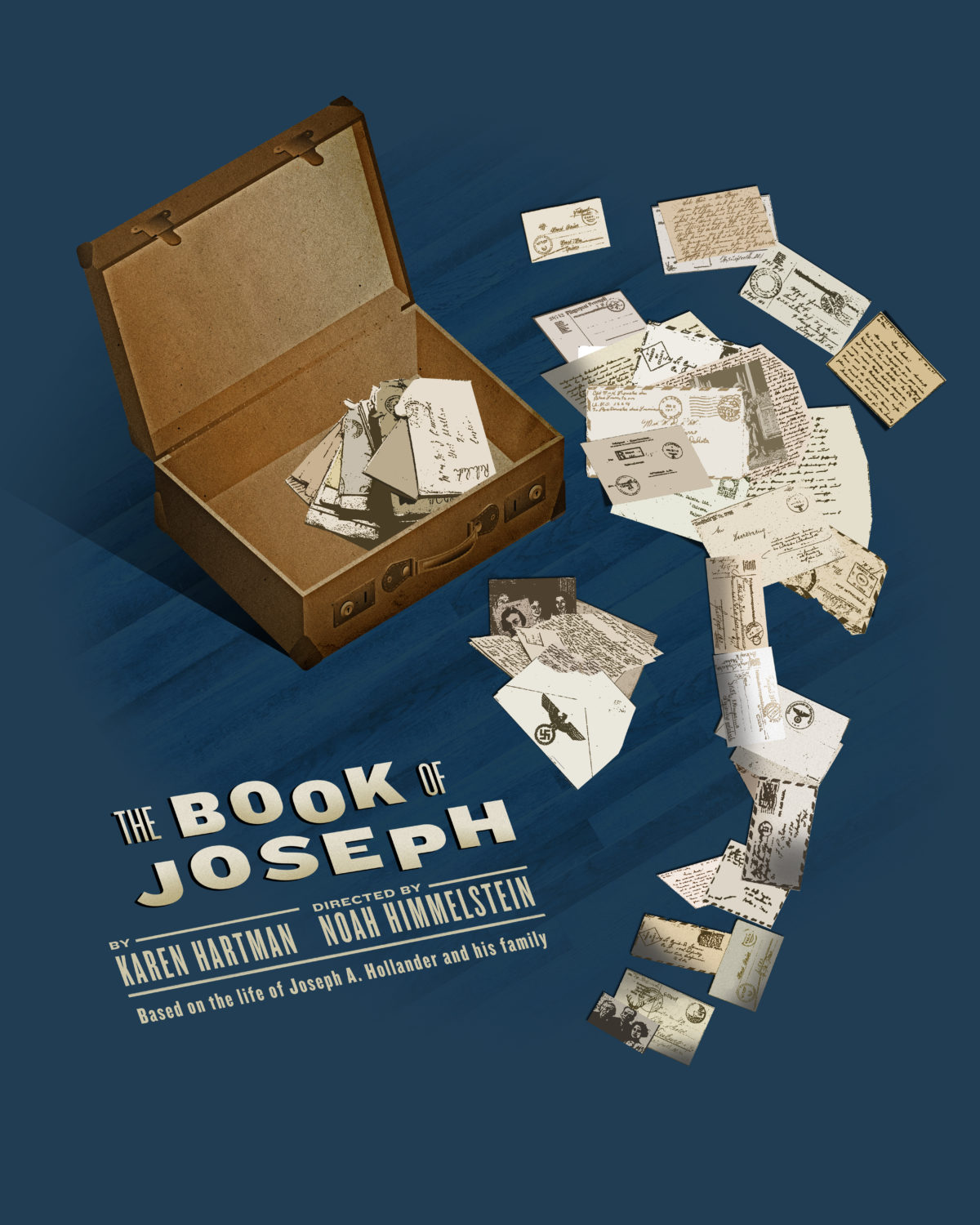The Book of Joseph: Everyman Theatre and a Jewish Play

Playwright Karen Hartman and author and native Baltimorean Richard Hollander were kind enough to sit down with us and talk a little about their experiences with creating “The Book of Joseph” and bringing the story of Richard’s family to life.
Interview by JMM Marketing Manager Rachel Kassman. Filming and transcription by Carmen Venable. This interview was filmed on April 11, 2018 at the Everyman Theatre in downtown Baltimore, MD.
“The Book of Joseph” runs at the Everyman Theatre May 9 –June 10, 2018. It’s companion exhibit, “The Book of Joseph: Giving Voice to the Hollander Family,” is on display at the Jewish Museum of Maryland April 22 – June 3, 2018.
In this clip Karen discusses why Everyman Theatre’s production of “The Book of Joseph” is particularly exciting.
Transcript:
Karen Hartman: Well, one thing that’s exciting about this production is that Everyman Theatre is one of the few theaters in the country to keep a resident company of actors. This used to be a part of the American Regional system and it just isn’t anymore. So, in our production here, this group of actors, who are playing a family, they kind of are a family. More than half of them are part of this company, they know each other, they work together. There’s this built in rapport and intimacy that they bring the production from the beginning that’s really exciting. And the other thing is, I’m excited about this director, Noah Himmelstein, who I’ve known for a while, who’s just one of the most exciting young directors around, who both has the heart for this play, and the imaginative spirit for this play, and I’m really eager to see what he brings to it too.
In this clip Karen discusses why “The Book of Joseph” is a Jewish play.
Transcript:
Karen Hartman: No one has ever asked me about this play as a Jewish play, probably because it’s in part a Holocaust story, so that seems in some ways obvious, and in many ways we want to emphasize all of the ways that the play is universal and about immigration and American-ness and this idea of a briefcase. There’s also something that in a way, I can’t quite identify, strikes me as particularly Jewish, about a yearning to have a conversation with an ancestor. And I don’t know why that is, but I’ve known it from when I first started teaching playwriting– I started teaching when I was in my early twenties. I was right out of college and one of the first places I taught a playwriting workshop was a Jewish day school, and I asked the students, “Write a paragraph about something you want that you can’t buy with money,” as a starting point for teaching the kind of dramatic questions. And this little boy, a fifth grade boy, wrote, “I wish I could go back in time and meet my grandfather.” And I thought, this strikes me as a cultural habit of yearning to have that conversation with someone in the past. It’s been a huge part of my work, writing about my own family history, probing out those questions, writing a character who meets her own grandmother, and there’s something about the way this play works, that although it is– although it plays around in time and space, it doesn’t play around in a way that’s playful or random. It plays around in a way that serves this central yearning of, “I want to go back, I want to know my history better, I want to know my dad better.” And it strikes me as a Jewish habit of inquiry.
